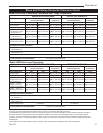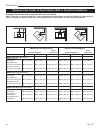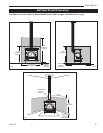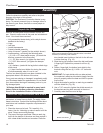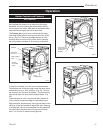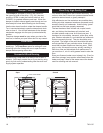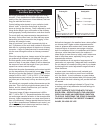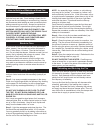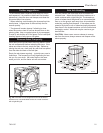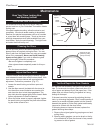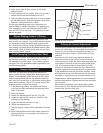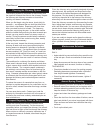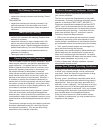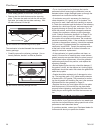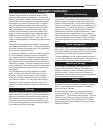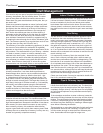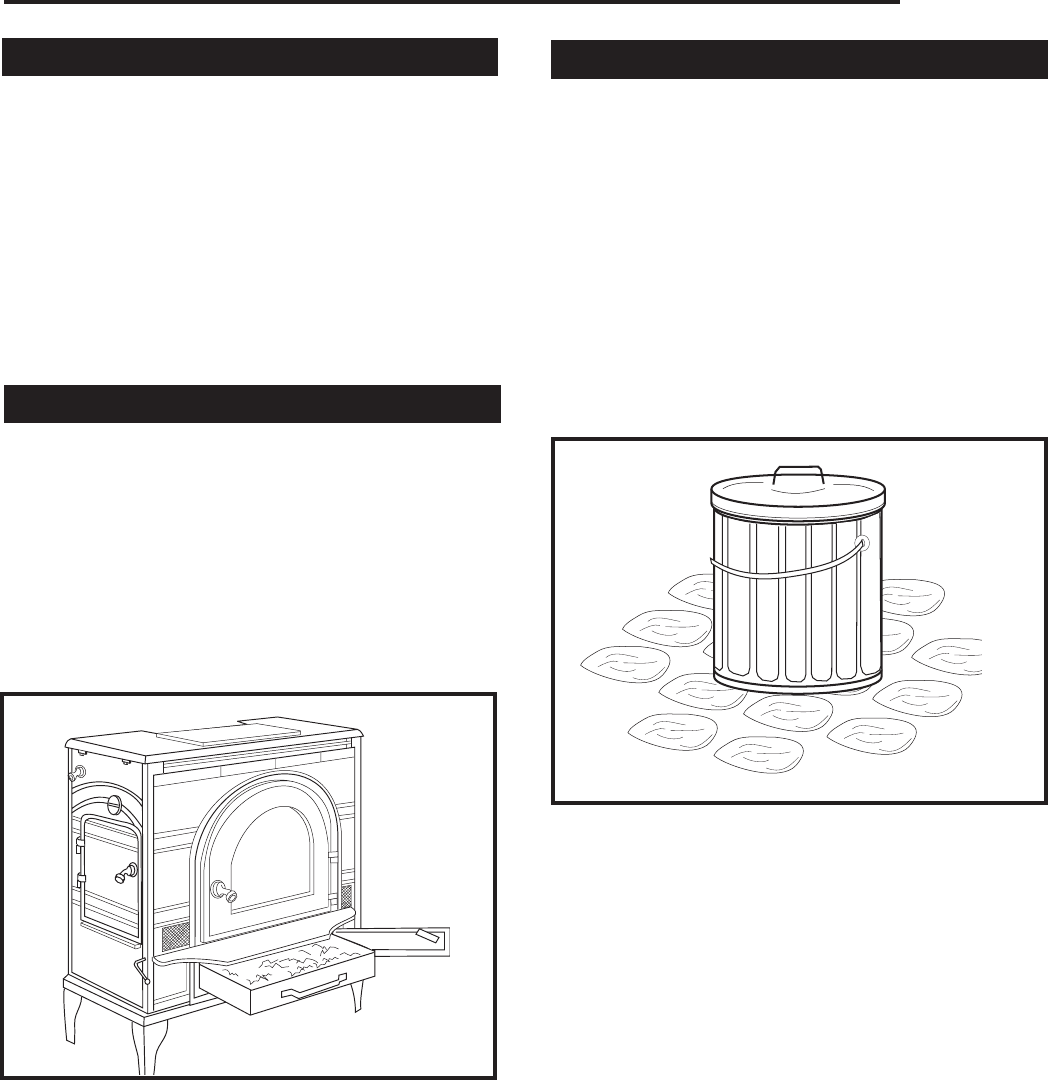
21
Dutchwest
7001135
Further suggestions...
* If the charcoal bed is relatively thick and your fuel is
well-seasoned, it is possible to add fresh fuel (smaller
pieces first), close the door and damper, and reset the
air control within five minutes.
* When refueling, avoid breaking the charcoal bed into
small pieces. Large pieces of charcoal help the fire
recover quickly.
* The glass will remain cleaner if refueling is done
when the previous load of fuel has burned down to hot,
glowing coals. Use a crumpled piece of dry newspaper
to wipe fly ash buildup off of the glass. Do not use liquid
cleaning agents of any type on hot glass.
Remove Ashes Frequently
Wear heavy stove gloves when removing ashes. Check
the ash compartment before reloading the stove. If the
ashes are close to the top, empty the pan. Before re-
placing the ash pan, clear away any ash that has spilled
over the sides and back of the ash pan.
Empty the ash drawer regularly - typically every one to
three days. The frequency will vary depending on how
hot you run your stove: the hotter the fire, the more
wood you burn, and the faster ash will accumulate.
Safe Ash Handling
Ash may contain hot coals and must be treated with
extreme care. Ashes should be placed outdoors in a
metal container with a tight-fitting lid. The closed con-
tainer of ashes should be placed on a noncombustible
floor or on the ground, well away from all combustible
materials, pending final disposal. If the ashes are dis-
posed of by burial in soil or otherwise locally dispersed,
keep them in the closed container until all cinders have
thoroughly cooled. Wood ash may be used as a gar-
den fertilizer.
CAUTION: Never use a vacuum cleaner to remove
ash from the stove; always remove and dispose of the
ashes properly.
ST438
ash pail
7/6/00 djt
ST438
ST432
Dutchwest
heat control
8/28/00 djt
ST437
Fig. 26 Hot ashes can be dangerous and must be stored
outdoors on a noncombustible surface in a metal container
with a tight-fitting lid.



